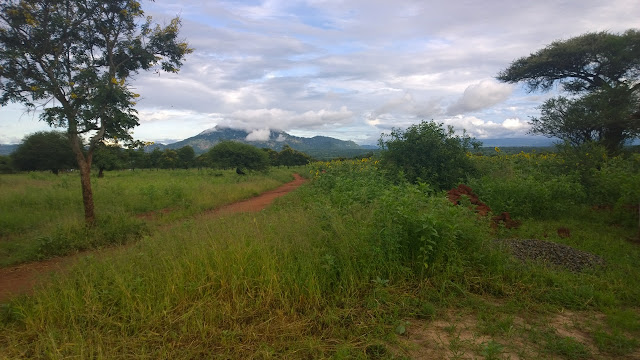Our Aramean Ancestry
From 20 Feb: A devotion written for recent travelers to Tanzania.
 |
| The Red Roads of Pommern - July 2008 |
‘A wandering Aramean was my ancestor; he went down into Egypt and lived there as an alien, few in number, and there he became a great nation, mighty and populous. When the Egyptians treated us harshly and afflicted us, by imposing hard labour on us, we cried to the Lord, the God of our ancestors; the Lord heard our voice and saw our affliction, our toil, and our oppression. The Lord brought us out of Egypt with a mighty hand and an outstretched arm, with a terrifying display of power, and with signs and wonders; and he brought us into this place and gave us this land, a land flowing with milk and honey. So now I bring the first of the fruit of the ground that you, O Lord, have given me.’
Consider This: Migration is woven into our theological and spiritual DNA. Ours is a wandering God - one who walks in the garden with those he created, who leads his people by a pillar of cloud by day and of fire by night, who turned his face toward Jerusalem accompanied by fishermen and outcasts, who moves among us like a wind and dances above our heads like a tongue of fire. We are, all of us, a people on the move - a people scattered at Babel, Israelites wandering the desert, exiles in Babylon, and resident aliens in the lands of princes and of powers.
Pray: God of all Nations, We confess that our Ancestor, too, was a wandering Aramean and that we, likewise, are a people on the move. As we walk alongside our brothers and sisters in Tanzania help us to do so with eyes wide open - ever aware of the movement of your peoples around this planet and the stirring of your Holy Spirit among us all. In the name of your son, Jesus Christ, who crossed over from Heaven to Earth so that we might return to you, we pray. Amen.


Comments